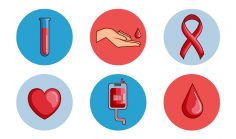Huntington’s disease occurs in stages of increasing symptomatic severity, and thought symptoms vary from person to person, even within the same family, disease progression is divided into three stages.
Early Stage Huntington’s Disease
Early stage Huntington’s disease is characterized by slight changes in cognitive function, coordination, and overall motor ability, including changes in hand writing, muscle twitches, delayed reasoning ability, and memory loss. Depressed and irritable mood are also often present. The disease may make a person less able to work at their usual level, and less functional in their home life as well. Medications are often effective in treating depression and other emotional problems.
Middle Stages of Huntington’s Disease
During the middle stages of Huntington’s disease, changes in cognitive and motor function worsen, and involuntary twitches may become more pronounced. Diminished speech and difficulty swallowing may necessitate help from speech language therapists, and medication may be recommended by doctors to provide respite from involuntary motor movements. Significant disruption in day to day activities becomes more common as the disease progresses..
Late Stage Huntington’s Disease
Late stage Huntington’s disease is characterized by extremely severe motor and cognitive impairment, so much so that a patient may be unable to swallow, eat, speak, or walk without assistance. A person with Huntington’s is totally dependent on the care of others at this stage, though he or she will likely be able to understand language and continue to have awareness of family and friends. Choking becomes a big concern (due to muscle weakness and incoordination involving swallowing), and in fact, when a person with the disease dies, it is often from complications, like choking, or infection, and not from the disease itself.
During all stages of Huntington’s disease, weight loss can be a major complication that can lead to worsened symptoms. It is important to adjust the diet as necessary to help maintain appetite.
10% of Huntington’ s cases affect children or adolescents—this is known as Juvenile Huntington’s Disease (JHD). Symptoms are somewhat different than with adult onset Huntington’s disease, and Juvenile Huntington’s typically has a more rapid progression than adult onset Huntington’s. Stiff and/or awkward walking, changes in speech, and decline in the ability to learn new information are common symptoms with JHD.
Huntington’s disease is not fatal in itself. It is a progressive, degenerative disease, however, with no known cure. Those who have HD have a shorter life expectancy, and usually die within 10 to 30 years. The cause of death is typically from related complications like infection, choking, or heart failure. Suicide is also common in those with this disease. It is key to point out that HD manifests differently in individuals, and severity and onset of symptoms is specific to the person. Eventually patients require round-the-clock palliative care. Various medications are available to help relieve symptoms associated with this condition.
Huntington’s Disease: Genetic mutation and CAG Repeats
Huntington’s disease is known as an inherited disease, but it wasn’t until 1993 that scientists were able to identify the exact genetic mutation that causes the disease. The human genome is contained within 23 pairs of chromosomes, rod-like structures that are tightly packed with genetic material coded in sequences of four proteins – cytosine (C), adenine (A), guanine (G), and thymine(T). We are all born with two copies of the Huntington’s disease gene, one from each parent. Huntington Disease occurs when the sequence cytosine, adenine, guanine—or CAG—repeats too many times in a specific region on the fourth chromosome. The number of CAG sequences on the fourth chromosome of HD patients often increases as the severity of the disease progresses. Simply put, those who develop Huntington’s disease have longer CAG repeats than those that do not develop the disease.
Huntington’s Disease progression
The one clue into disease progression and severity of symptoms comes from the number of defective genes present. Huntington’s disease is caused by a mutation that occurs in genes located on chromosome 4, is known as an expansion mutation of the trinuceleotide cytosine-adenine-guanine (CAG). The length of this CAG expression determines the severity and onset of the disease, and it is thought that the number of CAG repeats accounts for the majority of the variation in hold old people are when symptoms first emerge. Environmental and other genetic markers are thought to account for the rest of the variability in disease expression. The difference between a healthy individual with no HD ad one with HD lies in the expansion of this gene. Healthy individuals typically have fewer than 36 repeats; those with 36 to 39 repeats develop a mild form of Huntington’s disease that is associated with a much later disease onset and much slower disease progression. This is referred to as reduced-penetrance Huntington’s disease. As Huntington’s disease is passed on through generations, the number of CAG repeats tends to increase, meaning that successive generations tend to have a more severe disease expression, and an earlier disease onset than previous generations











